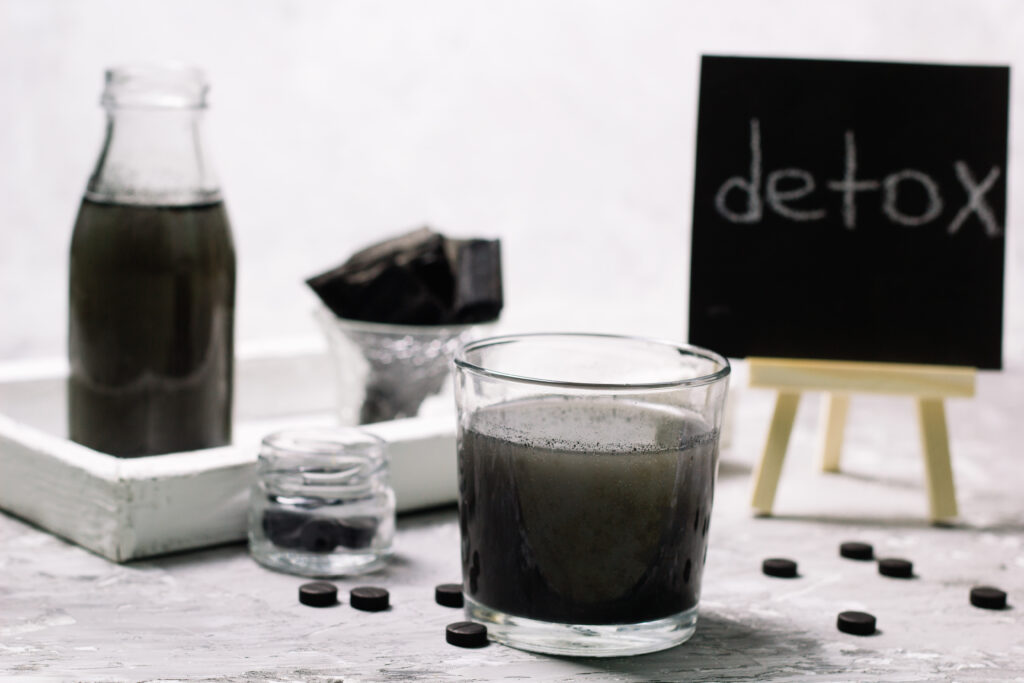Solving Autoimmune Conditions – Getting To The Root Cause Of Cellular Inflammation
One of the main keys to solving autoimmune conditions comes down to eliminating chronic inflammation, specifically cellular inflammation. While acute inflammation is a necessary and normal part of our natural defense system, toxin-induced chronic inflammation damages our health.
Exposure to environmental toxins contributes to ongoing inflammation in the body. Chronic inflammation leads to various health issues, including autoimmune diseases and cardiovascular problems.1 2
Solving Autoimmune Conditions – Reducing Exposure And Removing Toxins From The Body
Toxins have a significant impact on the body’s immune response and overall health. Therefore, it is crucial to limit exposure to toxins and support the body’s natural detoxification processes.
Toxins cause chronic inflammation by disrupting cellular processes, leading to oxidative stress. By limiting exposure to toxins and removing toxins from the body, we can help reduce inflammation and get one step closer to solving autoimmune conditions.3
Toxins That Are Linked To Autoimmune Conditions
There are several toxins that have been linked to the development of autoimmune conditions. Specifically, heavy metals, pesticides, plastics, air pollution, and mold are all responsible for triggering autoimmune conditions.

Solving Autoimmune Conditions – Removing Heavy Metals From Your Life
Heavy metals such as mercury, lead, cadmium, and arsenic are commonly found in our environment. They can be present in contaminated water, soil, and air, as well as in certain foods such as seafood and rice. These toxic metals have been shown to have a direct effect on the immune system and contribute to the development of autoimmune diseases.4
It is important to note that heavy metals can accumulate in the body over time, leading to a range of health issues. This highlights the importance of monitoring and regulating heavy metal levels in our environment and food sources.
In addition to their impact on the immune system, heavy metals have also been linked to other serious health concerns such as neurological disorders, developmental delays, and kidney damage. They also disrupt hormonal balance and interfere with the body’s natural detoxification processes.5 6
To limit exposure to heavy metals, it is crucial to be aware of potential sources and take necessary precautions. This includes being mindful of seafood consumption and medical procedures like dental fillings, as well as properly disposing of household items like batteries and electronic devices that may contain heavy metals.
Removing Heavy Metals From The Body With Oral Chelation Therapy And Binders
The only way to deal with the lifelong detrimental effects of heavy metals is to remove them from the body. Oral chelation therapy is a method used to pull heavy metals from tissues so they can be excreted from the body. Binders ensure that heavy metals are not allowed to recirculate within the body. Chelation therapy is often administered intravenously, but oral chelation therapy is less invasive and far more convenient.
Oral chelation therapy involves taking supplements containing natural or synthetic chelators, such as ALA, DMSA, or DMPS. These chelators bind to heavy metals and help remove them through feces.7 8
Heavy Metal Binders – Activated Charcoal And Zeolite
Heavy metal binders are an important tool in eliminating heavy metals. After chelators pull heavy metals from tissues they often end up in the bile. Bile is a fluid produced by the liver that helps to digest fats and eliminate waste products from the body. Heavy metals typically remain in the bile and are reabsorbed back into the body. However, binders when used in combination with chelators, pull heavy metals from the bile so they can be permanently eliminated.9
There are a number of heavy metal binders on the market, but two of the best are activated charcoal and zeolite.
Activated Charcoal
Activated charcoal, also known as activated carbon, is a form of carbon that has been treated with oxygen to create a highly porous surface. This porous structure allows it to attract and trap a wide variety of chemicals and toxins. Activated charcoal binds to heavy metals as well as pesticides, mold, and drug residues.
When activated charcoal is ingested, it travels through the digestive system and binds to toxins along the way. It then passes through the body and is eliminated through bowel movements. Some individuals may experience temporary constipation or black stools due to the binding properties of activated charcoal. It is important to choose high-quality, food-grade activated charcoal for consumption.10

Zeolite
Zeolite is a natural mineral that has been used for centuries in traditional medicine for its detoxifying properties. It is made up of a unique crystalline structure that allows it to trap and remove heavy metals and other toxins from the bile. Like activated charcoal, zeolite also binds to heavy metals, pesticides, and mold. Zeolite passes through the body pulling heavy metals along with it so they are eliminated through bowel movements.
Some individuals may experience temporary digestive upset or flu-like symptoms when first using zeolite. This is often a sign that the body is eliminating toxins. Zeolite may interact with certain medications, so it is important to consult with a healthcare professional before use.11
Read more about the toxic effects of heavy metals.
Solving Autoimmune Conditions – No More Pesticides
Pesticides are chemicals used to kill pests and insects on crops. They can also be found in household products such as insect repellents and disinfectants. Exposure to pesticides has been linked to various autoimmune disorders, including rheumatoid arthritis and lupus.12 13
One study found that women with higher levels of organochlorine pesticides in their blood were more likely to develop autoimmune thyroid disease. Another study observed an association between pesticide exposure and the development of multiple sclerosis.14 15
The best solution to removing pesticides from your life is to opt for organic produce whenever possible. Organic farming practices prohibit the use of synthetic pesticides, making it a safer option for both consumers and the environment.
Read more about the toxic effects of glyphosate.
Solving Autoimmune Conditions – Stop Using Plastic
Plasticizers are chemicals used to make plastics more flexible and durable. They can be found in food containers, water bottles, and other everyday products. Some plasticizers, such as bisphenol A (BPA), have been linked to autoimmune conditions like multiple sclerosis. Researchers have found that these chemicals can disrupt the immune system and lead to inflammation, resulting in autoimmune diseases.16
When plastic products are heated or exposed to acidic substances, such as certain foods and drinks, the plasticizers can leach into the contents. This means that we could be unknowingly ingesting these harmful chemicals on a daily basis. Additionally, when we dispose of plastic products, these chemicals can seep into the environment and contaminate our food and water sources.
To lower our exposure to plasticizers, limit or eliminate the use of plastics. Instead of using disposable plastic bottles or containers, opt for reusable options made from glass or stainless steel. When purchasing food and drinks, look for products that are stored in glass containers rather than plastic.
Avoid heating or freezing food in plastic containers, as this can speed up the leaching process of plasticizers. Instead, transfer leftovers into a glass or ceramic container before reheating. It’s also important to avoid microwaving food in plastic containers, as the heat can cause chemicals to leach into our food.17
We should also be mindful of our personal care products and household cleaners. Many of these products come in plastic bottles that may contain harmful plasticizers. Look for alternatives that come in glass or metal packaging instead.
Read more about the toxic effects of microplastics.

Solving Autoimmune Conditions – Avoid Air Pollution
Exposure to air pollution, particularly fine particulate matter, has been associated with increased risk of autoimmune diseases. These particles enter the lungs and trigger an inflammatory response in the body, leading to the development of autoimmune conditions. Fine particulate matter, also known as PM2.5, is one of the main culprits.
PM2.5 refers to tiny particles that are 2.5 micrometers or smaller in diameter. These particles are so small that they can easily enter our lungs and even pass into our bloodstream, triggering inflammation throughout the body.18
While air pollution is a major environmental issue, there are steps you can take to minimize your exposure and protect yourself from developing autoimmune diseases or worsening existing conditions.
Investing in a good quality air purifier can help remove harmful indoor particles from your home. Look for one with a HEPA filter, as these are able to capture PM2.5 particles.
Solving Autoimmune Conditions – Remove Mold From Your Home
Mold is a type of fungus that grows in damp indoor environments. Exposure to mold has been linked to various respiratory issues, but recent research also suggests that it may contribute to the development of autoimmune diseases like asthma and Crohn’s disease.
Mycotoxins are toxic substances released by molds as they grow and spread. When we are exposed to these mycotoxins, our immune system can become overwhelmed and overreact, leading to chronic inflammation and potentially triggering autoimmune responses.19
The first step in removing mold from your home is to identify where it is coming from. Look for areas with high levels of moisture, such as leaky pipes or roofs, and address the source of the problem. Instead of harsh chemical cleaners, opt for natural solutions like vinegar or hydrogen peroxide. These can effectively kill mold without introducing additional toxins into your home.
Mold thrives in damp, poorly ventilated areas. Increase airflow in your home by opening windows and using exhaust fans in bathrooms and kitchens. If you live in a particularly humid area, investing in a dehumidifier can help reduce the amount of moisture in the air and prevent mold growth. In some cases, mold may have already spread to porous materials like drywall or carpet. In these cases, it is best to have a professional remove and replace the affected materials instead of trying to clean them.
Read more about the toxic effects of mold.
Solving Autoimmune Conditions – Getting To The Root Cause Of Cellular Inflammation
Solving autoimmune conditions requires addressing one of the main root causes of cellular inflammation, toxins. Toxins wreak havoc on our cells, leading to chronic inflammation and autoimmune conditions. By reducing toxin exposure through lifestyle changes, we can reduce cellular inflammation and improve overall health.
Read about how fasting reduces chronic inflammation.
References
1 Duan L, Rao X, Sigdel KR. Regulation of Inflammation in Autoimmune Disease. J Immunol Res. 2019 Feb 28;2019:7403796. doi: 10.1155/2019/7403796. PMID: 30944837; PMCID: PMC6421792.
2 Pahwa R, Goyal A, Jialal I. Chronic Inflammation. [Updated 2023 Aug 7]. In: StatPearls [Internet]. Treasure Island (FL): StatPearls Publishing; 2024 Jan-. Available from: https://www.ncbi.nlm.nih.gov/books/NBK493173/
3 Jaishankar M, Tseten T, Anbalagan N, Mathew BB, Beeregowda KN. Toxicity, mechanism and health effects of some heavy metals. Interdiscip Toxicol. 2014 Jun;7(2):60-72. doi: 10.2478/intox-2014-0009. Epub 2014 Nov 15. PMID: 26109881; PMCID: PMC4427717.
4 Jan AT, Azam M, Siddiqui K, Ali A, Choi I, Haq QM. Heavy Metals and Human Health: Mechanistic Insight into Toxicity and Counter Defense System of Antioxidants. Int J Mol Sci. 2015 Dec 10;16(12):29592-630. doi: 10.3390/ijms161226183. PMID: 26690422; PMCID: PMC4691126.
5 Witkowska D, Słowik J, Chilicka K. Heavy Metals and Human Health: Possible Exposure Pathways and the Competition for Protein Binding Sites. Molecules. 2021 Oct 7;26(19):6060. doi: 10.3390/molecules26196060. PMID: 34641604; PMCID: PMC8511997.
6 Liu D, Shi Q, Liu C, Sun Q, Zeng X. Effects of Endocrine-Disrupting Heavy Metals on Human Health. Toxics. 2023 Mar 29;11(4):322. doi: 10.3390/toxics11040322. PMID: 37112549; PMCID: PMC10147072.
7 Zalups RK, Bridges CC. Relationships between the renal handling of DMPS and DMSA and the renal handling of mercury. Chem Res Toxicol. 2012 Sep 17;25(9):1825-38. doi: 10.1021/tx3001847. Epub 2012 Jun 15. PMID: 22667351; PMCID: PMC4640686.
8 Sears ME. Chelation: harnessing and enhancing heavy metal detoxification–a review. ScientificWorldJournal. 2013 Apr 18;2013:219840. doi: 10.1155/2013/219840. PMID: 23690738; PMCID: PMC3654245.
9 Boyer JL. Bile formation and secretion. Compr Physiol. 2013 Jul;3(3):1035-78. doi: 10.1002/cphy.c120027. PMID: 23897680; PMCID: PMC4091928.
10 Zellner T, Prasa D, Färber E, Hoffmann-Walbeck P, Genser D, Eyer F. The Use of Activated Charcoal to Treat Intoxications. Dtsch Arztebl Int. 2019 May 3;116(18):311-317. doi: 10.3238/arztebl.2019.0311. PMID: 31219028; PMCID: PMC6620762.
11 Kraljević Pavelić S, Simović Medica J, Gumbarević D, Filošević A, Pržulj N, Pavelić K. Critical Review on Zeolite Clinoptilolite Safety and Medical Applications in vivo. Front Pharmacol. 2018 Nov 27;9:1350. doi: 10.3389/fphar.2018.01350. PMID: 30538633; PMCID: PMC6277462.
12 Chittrakul J, Sapbamrer R, Sirikul W. Pesticide Exposure and Risk of Rheumatoid Arthritis: A Systematic Review and Meta-Analysis. Toxics. 2022 Apr 21;10(5):207. doi: 10.3390/toxics10050207. PMID: 35622621; PMCID: PMC9143500.
13 Williams JN, Chang SC, Sinnette C, Malspeis S, Parks CG, Karlson EW, Fraser P, Costenbader K. Pesticide exposure and risk of systemic lupus erythematosus in an urban population of predominantly African-American women. Lupus. 2018 Nov;27(13):2129-2134. doi: 10.1177/0961203318805844. Epub 2018 Oct 11. PMID: 30309287; PMCID: PMC6207463.
14 Leemans M, Couderq S, Demeneix B, Fini JB. Pesticides With Potential Thyroid Hormone-Disrupting Effects: A Review of Recent Data. Front Endocrinol (Lausanne). 2019 Dec 9;10:743. doi: 10.3389/fendo.2019.00743. PMID: 31920955; PMCID: PMC6915086.
15 Hachim MY, Elemam NM, Maghazachi AA. The Beneficial and Debilitating Effects of Environmental and Microbial Toxins, Drugs, Organic Solvents and Heavy Metals on the Onset and Progression of Multiple Sclerosis. Toxins (Basel). 2019 Mar 5;11(3):147. doi: 10.3390/toxins11030147. PMID: 30841532; PMCID: PMC6468554.
16 Kharrazian D. The Potential Roles of Bisphenol A (BPA) Pathogenesis in Autoimmunity. Autoimmune Dis. 2014;2014:743616. doi: 10.1155/2014/743616. Epub 2014 Apr 7. PMID: 24804084; PMCID: PMC3997912.
17 Khalili Sadrabad E, Hashemi SA, Nadjarzadeh A, Askari E, Akrami Mohajeri F, Ramroudi F. Bisphenol A release from food and beverage containers – A review. Food Sci Nutr. 2023 May 7;11(7):3718-3728. doi: 10.1002/fsn3.3398. PMID: 37457148; PMCID: PMC10345686.
18 Al Housseiny H, Singh M, Emile S, Nicoleau M, Wal RLV, Silveyra P. Identification of Toxicity Parameters Associated with Combustion Produced Soot Surface Chemistry and Particle Structure by in Vitro Assays. Biomedicines. 2020 Sep 11;8(9):345. doi: 10.3390/biomedicines8090345. PMID: 32932874; PMCID: PMC7555766.
19 Kraft S, Buchenauer L, Polte T. Mold, Mycotoxins and a Dysregulated Immune System: A Combination of Concern? Int J Mol Sci. 2021 Nov 12;22(22):12269. doi: 10.3390/ijms222212269. PMID: 34830149; PMCID: PMC8619365.




